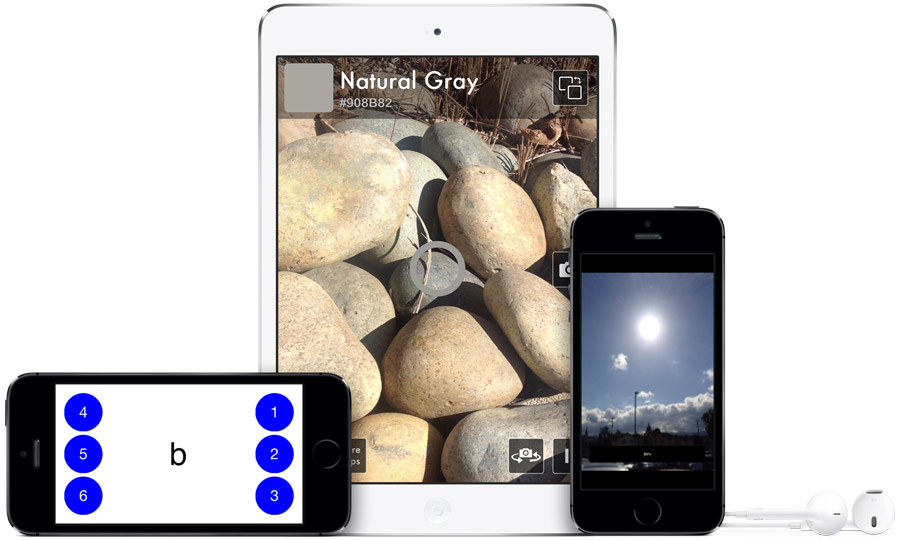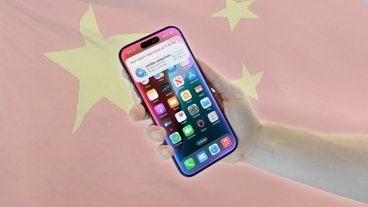Members of the National Federation of the Blind have approved a resolution that will have the advocacy group, which successfully sued Apple over iTunes in 2008, begin a new campaign designed to convince the iPhone maker to consider accessibility when approving apps for sale in the App Store.
While the resolution — which was approved during last week's NFB convention in Orlando, Fla. — does not call for a repeat of the 2008 litigation that saw Apple pay $250,000 and overhaul iTunes's accessibility features as part of a settlement, Reuters notes that some of the organization's members view such an action as inevitable if Apple fails to implement new accessibility requirements.
"It's time for Apple to step up or we will take the next step," NFB of California board member Michael Hingson told the news service. Hingson said another lawsuit would be "the only resort" to force compliance.
Update: Reuters has corrected its report to note that the NFB did not actually file a lawsuit against Apple in 2008. Further, NFB president Mark A. Riccobono has since issued a statement detailing the actual focus of its resolution and noting that "The issues raised in the resolution are not new."
Riccobono added, "I thought the chatter around the resolution would fade away until some media reports made inaccurate assertions about the resolution, its content, and what actions the NFB will take to carry it out. Many of these inaccurate assertions have been fueled by a provocative and poorly reported article from the Reuters news service, linked here only for reference.
Reuters has already been forced to correct the article because it reported, inaccurately, that the National Federation of the Blind once brought suit against Apple, Inc. This never happened, although a demand letter was sent regarding the accessibility of iTunes and iTunes U, and the Massachusetts Attorney General opened an investigation. Those actions resulted in a voluntary agreement with Apple that was a significant step in getting us the accessibility we experience today."
Apple has made a number of accessibility improvements in recent years, and iOS devices are often described by visually- and hearing-impaired people as having brought dramatic improvements to their quality of life. The company recently featured deaf travel writer Cherie King in an iPad advertisement detailing the tablet's ability to help her travel independently and communicate around the world, for instance.
"My iPad lets me share my journey with the world," King is quoted as saying. "Other deaf people tell me they're traveling more now because they see it's possible."
Blind advocates — who acknowledge Apple's contributions with features like VoiceOver and the forthcoming screen reading options in iOS 8 — say the company has not done enough to encourage third-party app makers to follow suit, however. Apps from companies including Bank of America, Southwest Airlines, and Netflix are cited as lacking basic accessibility features like button labels that can be read aloud by VoiceOver, degrading the experience.
 Sam Oliver
Sam Oliver







-m.jpg)






 Charles Martin
Charles Martin
 Christine McKee
Christine McKee
 Wesley Hilliard
Wesley Hilliard
 Malcolm Owen
Malcolm Owen
 Andrew Orr
Andrew Orr
 William Gallagher
William Gallagher
 Sponsored Content
Sponsored Content








95 Comments
I get why they would want apps to be accessible, but with the number of apps available, I find it difficult to picture how this would work. If it is simply buttons being VoiceOver accessible, I guess that would be a step in their direction. Yet, without wanting to be insensitive, no one is forcing anyone to use an iPhone, so if it doesn't work for you, don't use it.
What law has apple violated here? Why not sue the app maker? Why not sue google? I'm all for greater accessibility, but I don't quite understand this story...
Perhaps compliant apps could be "tagged" or given their own section (if they aren't already)? To be fair, it is completely the developer's choice to spend the additional time to include accessibility features. If they choose to not spend the additional effort, that's on them. On the other hand, I'm sure if lawsuits were filed against banks, the banks would lose and have to spend the extra dev time to bring their apps up to speed.
Perhaps compliant apps could be "tagged" or given their own section (if they aren't already)?
To be fair, it is completely the developer's choice to spend the additional time to include accessibility features. If they choose to not spend the additional effort, that's on them.
On the other hand, I'm sure if lawsuits were filed against banks, the banks would lose and have to spend the extra dev time to bring their apps up to speed.
I don't know what laws are in play here. But I would think that if Apple has to do this, then every other company that sells commercial software would have to do it. And so far as I know, that's not the case.
I wonder if the NFB knows their lawsuit threat is bs, but is just trying to use public pressure on Apple. If so, I think that's a pretty bad strategy.
[quote name="Blastdoor" url="/t/181285/national-federation-of-the-blind-pushes-apple-to-add-accessibility-requirements-for-apps#post_2561411"]I don't know what laws are in play here. But I would think that if Apple has to do this, then every other company that sells commercial software would have to do it. And so far as I know, that's not the case. I wonder if the NFB knows their lawsuit threat is bs, but is just trying to use public pressure on Apple. If so, I think that's a pretty bad strategy. [/quote] I suppose if a business/service already had a web site that was compliant, they'd have no real excuse for not doing the same with their app, but I believe compliance is still 100% voluntary. Perhaps we can get some blind or disabled folks or maybe a lawyer to weigh in with their opinions here?